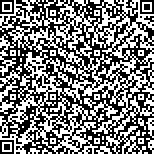| 摘要: |
| 在现有两种比较主流无损压缩算法基础上(Huffman算法和LZW算法), 根据海洋观测浮标采集的观测数据特点, 比较两种压缩算法的优缺点, 并通过布放在西太平洋海域的一套观测浮标数据进行数据验证。结果表明, 使用Huffman算法和LZW算法分别对海洋观测浮标数据进行压缩, 两者的压缩率都基本可达50%左右甚至更低, Huffman算法压缩率较优, 而LZW算法复杂度较优。通过分析, 可证明这两种无损压缩算法都能有效地提高深远海通信效率和降低通信成本, 同时也提高了科学观测数据的安全性和保密性, 可根据实际情况选择在深远海观测浮标数据通信中应用。 |
| 关键词: 海洋观测浮标 无损压缩 Huffman算法 LZW算法 |
| DOI:10.11759/hykx20171011002 |
| 分类号: |
| 基金项目:全球变化与海气相互作用专项(GASI-02-PAC-ST-MSwin);山东省海洋生态环境与防灾减灾重点实验室开放基金项目(2012016) |
|
| Application of Huffman and LZW algorithms in data compression for ocean-observation-buoy communication |
|
HU Bin,LI Zhong-qiang,LIU Ting-ting,WANG Han-yu
|
| Abstract: |
| In this paper, we discuss the advantages and disadvantages of two existing mainstream lossless compression algorithms (Huffman algorithm and LZW algorithm), based on data collected by an ocean observation buoy. For data validation, we use the observation buoy data. The results show that both the Huffman and LZW algorithms compress the ocean observation buoy data, but the compression rate of the original data by the Huffman algorithm reaches 50% or even higher. As such, the Huffman algorithm yields a better compression ratio, whereas the LZW algorithm more effectively describes the complexity. Based on these results, we conclude that both of these lossless compression algorithms can be used to effectively improve communication efficiency in far-reaching seas and reduce communication cost, while also improving the security and confidentiality of scientific observation data. These findings will prove useful in applications of deep-sea observation-buoy-data communication. |
| Key words: ocean observation buoy lossless compression Huffman algorithm LZW algorithm |
